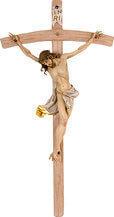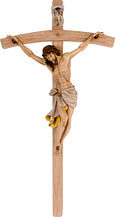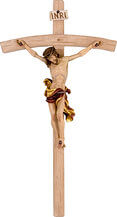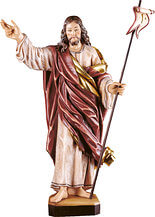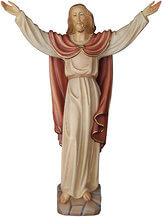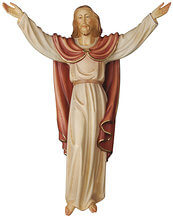For many people, Easter is primarily a family celebration with Easter egg hunts, chocolate Easter bunnies and colourful eggs. People often forget that for Christians, Easter is the oldest and highest festival in the church year. In this magazine article, we answer the most important questions about the origin, meaning and customs of Easter.
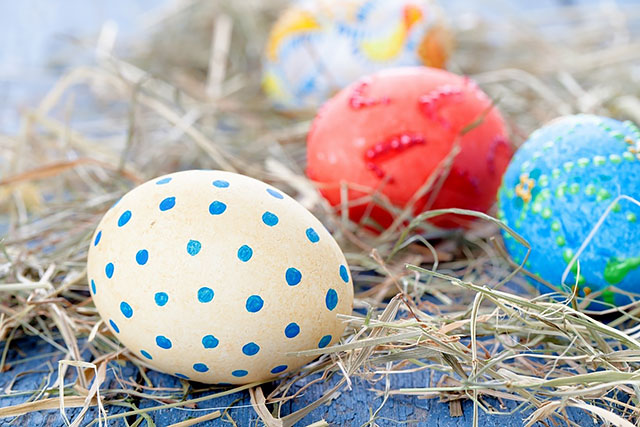
Table of contents
- Where does the term Easter come from?
- What exactly do we celebrate on Easter?
- Easter in the New Testament
- Relationship to Passover
- How is the date of Easter calculated?
- What Easter traditions are there and where do they come from?
- Why is there an Easter bunny?
- Why do we celebrate Easter with eggs?
- What is the Easter egg hunt all about?
- What is the significance of the Easter lamb?
- Where does the custom of dyeing Easter eggs come from?
- Where does the tradition of the Easter cot come from?
- What is the significance of the holidays before and after Easter?
- Ash Wednesday
- Palm Sunday
- Maundy Thursday
- Good Friday
- Holy Saturday
- Easter Sunday
- Easter Monday
- Pentecost
- Easter means the celebration of hope
Where does the term Easter come from?
Anyone interested in the origin and meaning of the term Easter will find different explanations in the literature:
- Whether French (Pâques), Italian (Pasqua), Dutch (Pasen) or Danish (Paske): in numerous European languages there is a connection between the word for Easter and the Jewish Passover.
- In Christian doctrine, the derivation of Easter seems to come from the East. This is because the women who were the first to stand at Jesus' empty tomb were looking east towards the sunrise (Latin for "aurora").
- Supposedly, the word Easter also goes back to Ostara, the name of a Germanic goddess of spring. A pagan spring festival is said to have been named after her. However, according to linguistic experts, this never existed.
- A more recent explanation is provided by the name expert Jürgen Udolph. He establishes a connection to a North Germanic word family. In Old Norse, "ausa" means "to scoop out water, to pour", austr "to water". Accordingly, in pre-Christian times it was customary to pour water on babies and thus bless them, which was called vatni ausa. Christianity adopted the name for this, as baptism was an essential part of the early Easter festivals.
What exactly do we celebrate on Easter?
On Easter, Christians celebrate the victory of life over death with the resurrection of Jesus and thus the central event of their religion. Already the great church teacher Augustine said: "Take away the resurrection and you destroy Christianity." While Jesus' birth in the stable is, according to researchers, merely a pious legend, Easter represents a "historical" Christian festival, which the Bible also reports about in detail.
Easter in the New Testament
According to the Gospels, which mainly report on the Easter event, God alone raised his Son from the dead. However, the Bible does not describe exactly how the resurrection took place. The New Testament also does not name any eyewitnesses to this miracle. Moreover, in the Gospels we read stories about the empty tomb, the proclamation of the resurrection by an angel, apparitions of the Risen Lord and the confessions that testify to this belief. Through his resurrection, Jesus was able to remind his disciples of him by means of their faith and to commission them with a worldwide mission. The Gospels offer a diverse view of the Easter event, with each evangelist placing a different emphasis.
Relationship to Passover
What is the connection between the Christian Easter and the Jewish Passover? Jesus did not celebrate Easter with his disciples at that time, but the Jewish Passover. The festival commemorates the liberation of the people of Israel from Egyptian slavery. In the temple in Jerusalem, sacrificial animals were slaughtered, reminiscent of the slaughter of the lambs in Egypt. At the same time, the lamb was offered as a sacrifice to save the people from plagues. Each Passover pilgrim took a piece of the meat home. Seder (Hebrew for "order") was also what Jesus shared with his disciples and what Christians celebrate today as the "Last Supper" on Maundy Thursday.
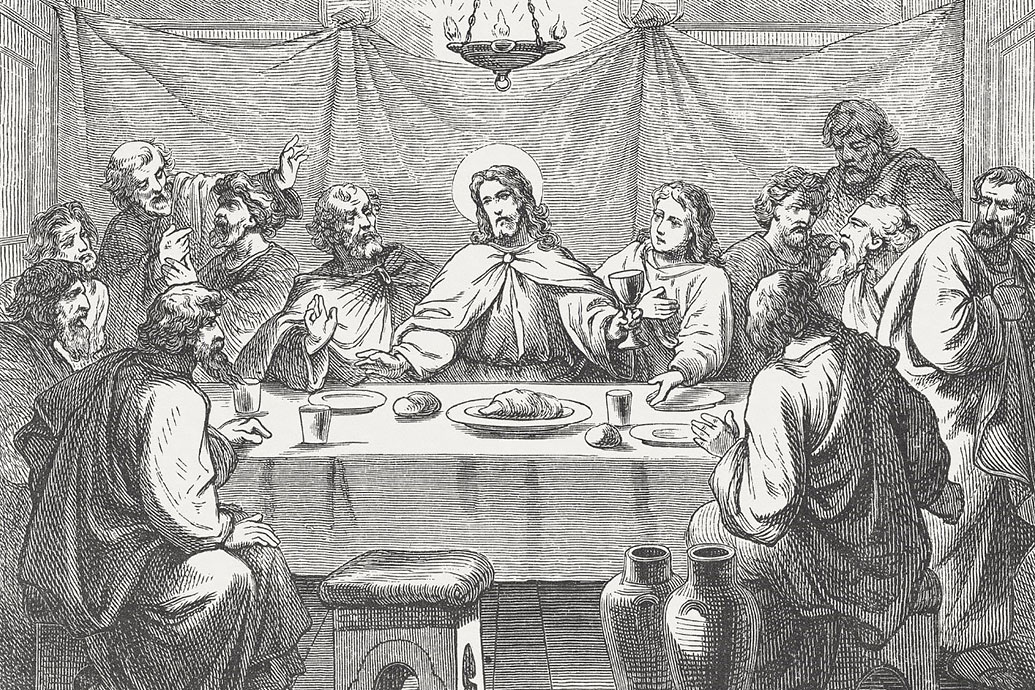 Jesus celebrates the Last Supper with his disciples.
Jesus celebrates the Last Supper with his disciples.The Jews celebrated this every year on the 14th day of the spring month of Nisan. The evangelists Matthew, Mark and Luke report that Jesus was crucified on the main day of the Passover; in John's Gospel, he died when the Passover lambs were being slaughtered. In their depiction of the events leading up to Jesus' death, the evangelists were guided by the customs of the time.
Theologians are of the opinion that Jesus' last supper can be dated to the eve of the Passover. In Lk 22:15 Jesus says to his disciples: "I have longed to eat this Passover meal with you before I suffer".
The closeness to Judaism is particularly evident in the Easter service:
- The priest enters the dark church with the lit Easter candle, symbolising the pillar of fire that showed the Israelites the way at night during the exodus from Egyptian captivity.
- A text on the exodus of the Israelites from Egypt is read from the 2nd Book of Moses.
- In the Paschal Exsultet, the praise of Easter, the priest sings of the true Lamb, whose blood saved the people from death.
How is the date of Easter calculated?
According to an old custom, Easter Sunday always falls on the first Sunday after the first full moon of spring. According to the Gregorian calendar, this is 22 March at the earliest and 25 April at the latest. This was laid down at the Council of Nicaea in 325. This rhythm still determines the course of our year today, as Carnival and Whitsun are also tied to the date of Easter.
Below you will find an overview of the dates of Easter Sunday in the coming years:
- 2021: April 4, 2021
- 2022: April 17, 2022
- 2023: April 9, 2023
- 2024: March 31, 2024
What Easter traditions are there and where do they come from?
All of us, whether Christians or non-Christians, associate Easter above all with a rich set of customs related to the awakening of nature in spring: chocolate bunnies, colourful Easter eggs, Easter lambs and more. But what relationship do these centuries-old Easter traditions have to Easter?
Why is there an Easter bunny?
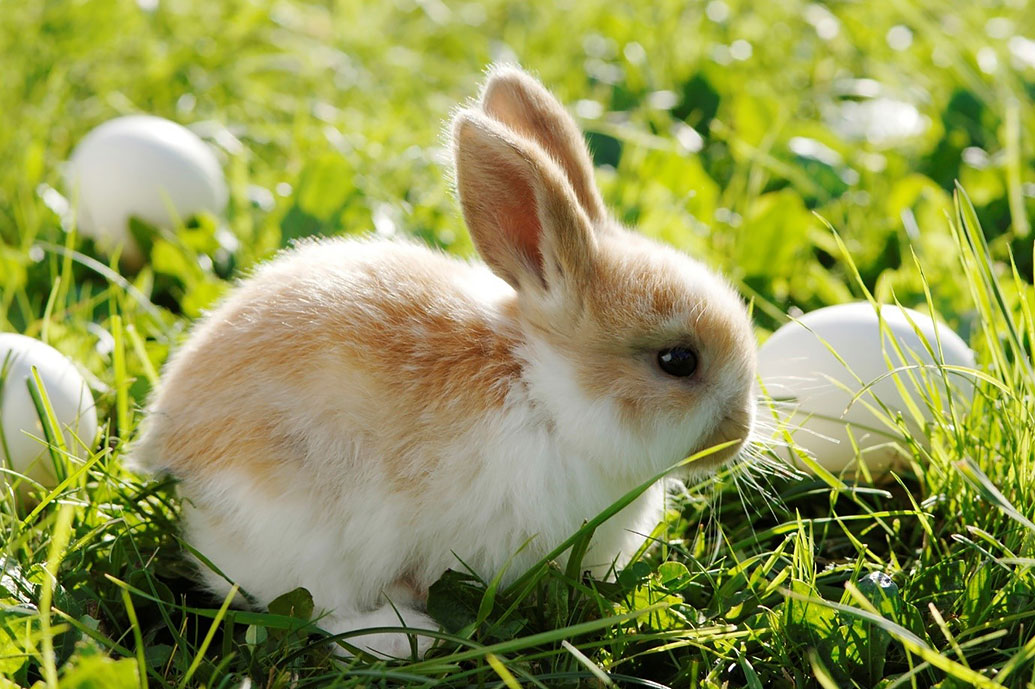 The Easter bunny as an Easter symbol stands for fertility and thus for life.
The Easter bunny as an Easter symbol stands for fertility and thus for life.The Easter bunny is the Easter symbol for excellence, not only on the Easter table or in the Easter nest of the children. Why a hare has become so popular is explained by the fact that hares stand for fertility and thus for life. They therefore refer to the resurrection as the central Easter event. In Byzantine animal symbolism, the hare is also a symbol of Jesus Christ.
Why do we celebrate Easter with eggs?
Easter and Easter eggs - they belong inseparably together. According to the author Georg Lohmeier, the Easter egg is not a pagan symbol, but a Christian one, as he writes in his book "The Anger of a Christian Man". Easter eggs have been consecrated for over 1600 years.
The egg has always been a symbol of fertility and rebirth in many cultures. In ancient Greece and Rome, colourful eggs were given as gifts to celebrate the spring equinox. On these days, the egg was revered as a sacred symbol of a new beginning. Christianity later adopted this ancient symbolism and gave it a special meaning: The chick that freshly hatches from the egg reminds us of the resurrection of Jesus on Easter Sunday.
What is the Easter egg hunt all about?
According to a survey, the Easter egg hunt is one of the most popular Easter customs for 24% of respondents. But where does this custom come from? Presumably, this tradition is of pagan origin. In order to pay homage to Ostara, the goddess of spring, people gave away decorated and coloured eggs. When Christianity became the accepted religion, the tradition was banned. However, since people still wanted to give each other eggs, they were secretly hidden in a field.
What is the significance of the Easter lamb?
 Sweet Easter lambs should not be missing on any laid Easter table.
Sweet Easter lambs should not be missing on any laid Easter table.The custom of the Easter lamb goes back to the Jewish Passover, when a lamb is sacrificed to the glory of God and prepared according to strict rules. Jesus was also Jewish and celebrated Passover with his disciples. At the Last Supper, in view of the approaching death, he called himself the "Lamb of God" (Agnus Dei): "Behold, the Lamb of God who takes away the sin of the world" (Jn 1:29). This refers to the death and resurrection of Jesus, through which he gave salvation to humanity. This is why we often encounter the paschal lamb as a symbol at Easter, because it is precisely this redemptive event that is central to the Easter celebration. In many families it is customary to give small gifts in the form of the Easter lamb or to eat baked Easter lambs at Easter breakfast.
Where does the custom of dyeing Easter eggs come from?
 Dyeing and decorating chicken eggs is an important Easter custom.
Dyeing and decorating chicken eggs is an important Easter custom.What would Easter be without coloured eggs? Coloured eggs have been known in Germany since the 13th century. There are two theories about the custom of dyeing Easter eggs:
- According to one theory, Christians dyed the eggs consecrated at Easter red to distinguish them from the unconsecrated eggs. The colour red is a reminder of Jesus' sacrificial death on the cross.
- In former times, no animal products were allowed to be eaten during Lent, but the eggs laid by the chickens were not to be thrown away, so they were hard-boiled to make them last longer. In order not to confuse the raw eggs with the cooked ones, onion peelings or beetroot, for example, were added to the cooking water and the eggs were coloured.
Where does the tradition of the Easter cot come from?
The tradition of the Easter cot, which focuses on the tragic end of Jesus' life story, dates back to the 18th and 19th centuries. At that time, the so-called Passion Nativity was widespread before it increasingly fell into oblivion in Europe. The Easter cot is a wonderful way of presenting the biblical background of Easter to interested people in a simple way through various scenes (Jesus' entry into Jerusalem, Maundy Thursday, the crucifixion on Good Friday, etc.).
You can read more about the Easter cot and its scenes and figures in our article: The Easter nativity: history and meaning.
What is the significance of the holidays before and after Easter?
The preparation time for Easter already begins on Ash Wednesday, the actual Easter period lasts from Easter Sunday to Pentecost. We have taken a closer look at the significance of the individual holidays around Easter.
Ash Wednesday
Ash Wednesday marks the end of the cheerful carnival season and the beginning of the serious and depriving Lent. Through renunciation and reflection, the faithful prepare for Easter for 40 days. Jesus serves as a model for them, as he himself persevered in the desert without food or drink and resisted the temptations of the devil (Mt 4:1-2). Ash Wednesday is a day of strict fasting and abstinence - meat is taboo on this day. Furthermore, only a single satiation is allowed, as well as a small snack in the morning and in the evening.
Palm Sunday
Palm Sunday is the prelude to Holy Week or Passion Week and recalls Jesus' entry into Jerusalem (Mt 21:1-11), where he wanted to celebrate the Passover with his disciples. The longed-for King of Peace was received jubilantly as the "Son of David". The people showed their reverence by spreading palm branches before him in the street. They hoped he would free them from Roman occupation. Jesus' popularity was a thorn in the side of the Romans. They feared he might become too powerful.
In memory of the events in Jerusalem, the faithful have palm or olive branches blessed on Palm Sunday. Afterwards, they go into the church in a solemn procession. After mass, following an old custom, the consecrated palm branches are taken home and placed behind a crucifix, for example, or attached to home altars or images of saints.
More posts
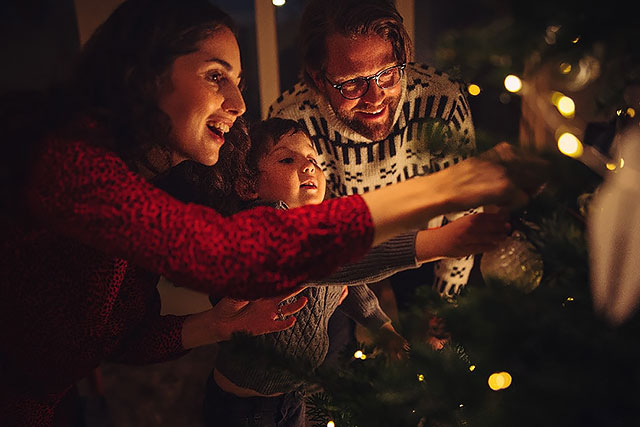
Christmas Eve: Why do we celebrate it?
According to its original meaning, Christians gather on Christmas Eve to celebrate the birth of Jesus. Non-Christian people also celebrate this day as a family holiday with presents. Learn more about the history and meaning of the day as well as traditional Christmas Eve dishes in this article.
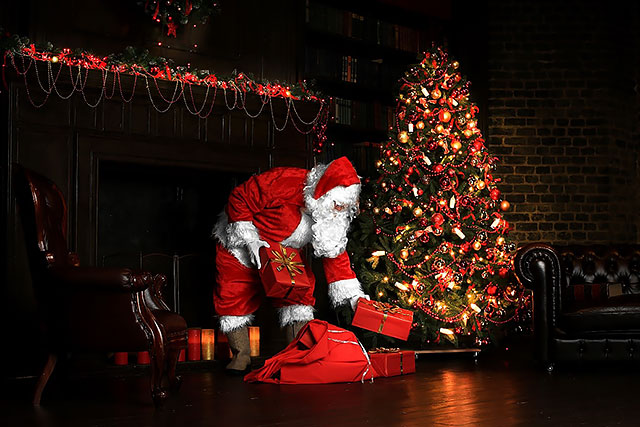
Father Christmas: Who is he really?
As Christmas season approaches, children big and small begin to wait patiently for Father Christmas to arrive. But where does the symbolic figure of Father Christmas come from? And what does he look like in other countries? We give you the answers to these and many other questions in this article.

Advent Calendar: History & Meaning
For most people, it is impossible to imagine the pre-Christmas season without it. But where does the tradition of opening a little door each day actually come from? How long have Advent calendars been around and how have they changed over time?


